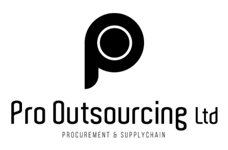Key Strategies for Effective Supplier Management in Procurement
Introduction: In today’s highly competitive business landscape, effective supplier management plays a vital role in the success of any procurement and supply chain operation. By implementing the right strategies, organizations can not only reduce costs but also enhance quality, mitigate risks, and drive overall operational efficiency. In this article, we will explore some key strategies for successful supplier management in procurement.
Build Strong Supplier Relationships:
One of the fundamental aspects of effective supplier management is fostering strong relationships with your suppliers. Establish open lines of communication and transparency to build trust and mutual understanding. Regularly engage with suppliers to understand their capabilities, challenges, and potential for collaboration. This relationship-building approach will create a solid foundation for long-term partnerships.
Implement Supplier Performance Metrics
To ensure suppliers meet your organization’s expectations, it’s crucial to establish clear performance metrics. Identify key performance indicators (KPIs) aligned with your business goals, such as on-time delivery, quality standards, responsiveness, and cost-effectiveness. Regularly evaluate supplier performance against these metrics and provide feedback to encourage improvement. This data-driven approach enables you to make informed decisions regarding supplier selection and performance management.
Conduct Comprehensive Supplier Assessments
When selecting suppliers, conducting thorough assessments is essential. Evaluate potential suppliers based on criteria such as financial stability, capacity, quality control processes, ethical practices, and environmental sustainability. Engage in a comprehensive due diligence process that includes site visits, reference checks, and verification of certifications. A well-defined supplier assessment process will help you choose reliable partners and minimize potential risks.
Develop Supplier Collaboration Programs
Collaboration with suppliers can lead to innovation, process improvements, and cost savings. Establish collaborative programs that encourage knowledge sharing, joint problem-solving, and continuous improvement initiatives. Engage suppliers early in product development stages to leverage their expertise and enhance product quality. By working closely with suppliers, you can drive efficiency and foster a culture of continuous improvement throughout the supply chain.
Embrace Supplier Diversity:
Promoting supplier diversity not only helps in achieving social responsibility goals but also brings tangible benefits. Engage with diverse suppliers, including minority-owned, women-owned, and small businesses. Supplier diversity brings innovation, fosters competition, and strengthens the local economy. Actively seek out diverse suppliers and incorporate supplier diversity as part of your procurement strategy.
Conclusion:
Effective supplier management is critical to optimizing procurement and supply chain operations. By building strong relationships, implementing supplier performance metrics, conducting comprehensive assessments, developing collaboration programs, and embracing supplier diversity, organizations can gain a competitive edge. By following these key strategies, businesses can enhance operational efficiency, mitigate risks, and create a robust and resilient supply chain network.
Remember, successful supplier management is an ongoing process that requires regular evaluation, adaptation, and continuous improvement. By investing time and effort in developing and nurturing supplier relationships, organizations can drive long-term success and create a sustainable competitive advantage in the marketplace.
Check out our other blogs: https://www.pro-outsourcing.co.uk/blog/

